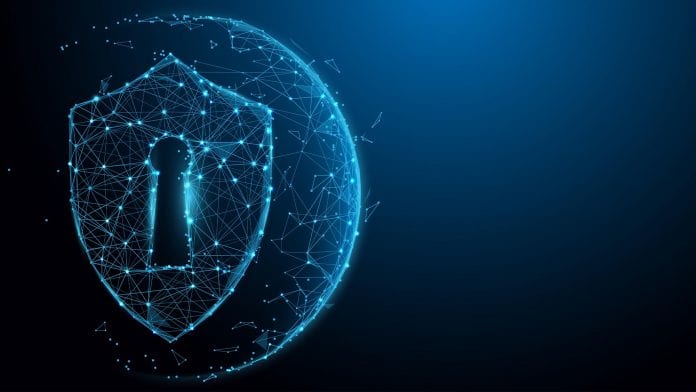
eFax talk digital security and the best ways to prevent patient data breaches through the removal of potential risk factors from your healthcare organisation.
It is an inescapable fact that working within the healthcare sector means the use of potentially sensitive or confidential data. Treatment and care of individuals requires personal details to be acquired, accessed and maintained. The result of this essentially concerns patient information being stored by healthcare organisations, and with millions of records needing to be kept safe and secure, digital security is now more relevant than ever.
Digital security can be worrisome for practitioners and healthcare organisations around the country. To properly maintain so much data is a task in itself, but when considering the requirements of the GDPR and tightening regulations from other authorities, the whole process becomes even more daunting.
Medical services are not exempt from new rules, placing further responsibility on the management of your patient’s data. You are liable for the consequences of data breaches if not managed properly. GDPR fines can hit in the millions, which is an alarming thought — especially considering the sheer volume of data you need to store and use.
Overcoming data breaches through digital security
The best way to negate the chances of patient data breaches is to remove potential risk factors from your healthcare organisation. It’s likely you’ve already considered things like data security as part of the GDPR, but have you thought of the effects your day-to-day processes might have?
Physical Fax Machines
The use of physical fax machines is common throughout the healthcare industry. Although the NHS relies on the technology, physical fax machines do present huge risks to patient data:
- Old-fashioned technology is vulnerable to malware and malicious attacks, which can compromise your entire IT network
- Physical fax machines can result in documentation left unmanaged in print trays or stored waiting in a queue. This invites the possibility of unauthorised parties reviewing files
- Fax machines require you to dial numbers. Numbers can, and have been, misdialled, resulting in data being sent to the wrong people.
Given this list of clear threats to patient data safety and the continued need for faxing to be part of day-to-day operations, it is clear that changes must be made. Fortunately, there are options to help overcome these challenges.
Online cloud faxing provides an alternative to the physical fax machine and is a step forward in developing effective digital security. It can offer higher levels of security through improved encryption protocols, access controls and digital document management. The technology helps to decrease instances of the issues mentioned above while still facilitating all faxing capabilities. Using a digital faxing platform as a form of digital security, instead of archaic physical fax machines contributes towards protecting patient data, takes away from physical paper management and brings your healthcare organisation into the 21st century.
Remote Work
Remote work opportunities are on the rise. In the healthcare sector, this can vary from specialist house calls and moving between practices, to taking your administrative work home or traveling between suppliers and partners. The ability to work with a bit more flexibility is welcomed by many, however, not all aspects of remote work are looked upon favourably. With increased mobility comes an element of risk when it comes to physical paper data.
Movement of patient files from various locations invites a number of different types of potential data breaches. It also increases the chances of things going wrong. Taking patient data outside of the work environment results in two major risks to safety and security:
New environments have different people in them. These could be other patients, family members, friends or even strangers. When more people have accessibility to important documents, there’s a greater risk of unauthorised exposure.
As lessons from the past have taught us, even senior spies are fallible. When documents pertaining to terror plots and national security were left on a train by accident, it proved that moving documents around for remote work present a serious chance for loss of data; no matter where you work.
The solution is a simple one. Potential risks can be managed by incorporating digital security practices into remote work. You might want protocols that require patient data to remain in the workplace, or to only use NHS Digital approved software that offer security encryption when taking paper documents off site.
A Lack of Training
When a data breach happens, it’s likely someone made a mistake somewhere along the chain of events that led up to the incident. Human error is the biggest cause of data breaches, contributing to 4 of the top 5 most common types of data exposure.
You and your staff are a risk factor. It’s just that simple. Mistakes may be unintentional, but when they result in sensitive data loss or damage, there is serious potential for harm to patients and your practice. Data breaches often occur due to a lack of awareness around how to properly manage data from storage, sending and archival; teamed with not understanding protocols and regulations.
Training in data protection and safety must become a core part of your practice’s ethos. If you and your staff are well versed in the art of data security, then you’ll be much better protected against the risks of human error.
More about eFax
eFax are market-leading suppliers of online cloud faxing solutions. The company’s innovative technology is used across the healthcare sector to help support organisations achieve better fax communication. Part of international brand J2 Global, eFax provide 21st-century fax services to a roster of over 11 million subscribers.
eFax Corporate
Tweet @eFax
www.efax.co.uk










